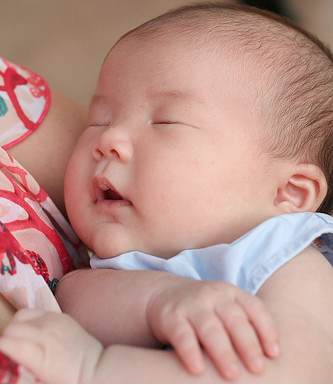
Sleep is essential no matter how old you are, however, to a growing mind and body a lack of sleep can be very detrimental.
Slowed speech and various behavioral problems can stem from not sleeping enough as can a decrease in cognitive abilities. Many children also experience heightened stress and anxiety without proper rest.
American Psychological Association estimates that sleep issues affect 69% of children on a number of nights each week. If your child is having difficulty, some things to try are:
-
- Reduce the amount of noise in the home. Have older siblings who are still awake play quietly and observe a quiet period that starts 15 to 30 minutes before bedtime. This time should be tranquil and there should be minimal stimulation this will allow the mind and body to calm and prepare to rest.
-
- Make sure that the bedroom is not too hot or too cold and dress the child appropriately. This will ensure that the child will not become restless due to being freezing cold or sweating.
-
- It is also important to have a set bedtime and routine. If everything happens at a standard time, the body will become adjusted to the schedule.
How much sleep does my child need?
Sleep Requirements by age are as follows:
| Age | Required Sleep |
| One to four weeks old | 15-16 hours each day |
| One to twelve months old | 14-15 hours each day |
| One to three years old | 12-14 hours each day |
| Three to six years old | 10-12 hours each day |
| Seven to twelve years old | 10-11 hours each day |
| Twelve to eighteen years old | 8-9 hours each day |
As parents, you are constantly under the watchful eye of a child. The deprivation of sleep can affect adults in much the same way as children through moodiness and slowing the rate at which your brain processes information. Set a good example for your children by getting enough sleep yourself.
How Much Sleep do Parents Need?
Sleep deprivation suppresses your immune system, making you more susceptible to illness.
- Being sleep deprived makes us more likely to catch a cold. In a 2009 study, people sleeping less than 7 hours per night had a 3 times greater risk of catching a cold than those with 8 hours or more.
- We all know that fatigue makes us crankier and easily inflamed, but it actually undermines a key part of the body’s inflammatory response—called cytokines— which are absolutely essential for fighting off infections.
- As exhaustion rises so does the risk of serious infection. In a study of 57,000 women, those trying to get by on less than 5 hours of sleep a night had a 50% increase in risk of pneumonia.
- Several studies have found that sleep promotes a stronger immune response to vaccines—which improves our body’s immunological memory.
- Sleep may also help our T cells better glom onto their target to fight infection, according to a recent study out of Germany.
Bottom line? Sleep is one of the best things you can do to strengthen your immune system and protect your body from cold and flu,” “Get your zzzz’s!”









